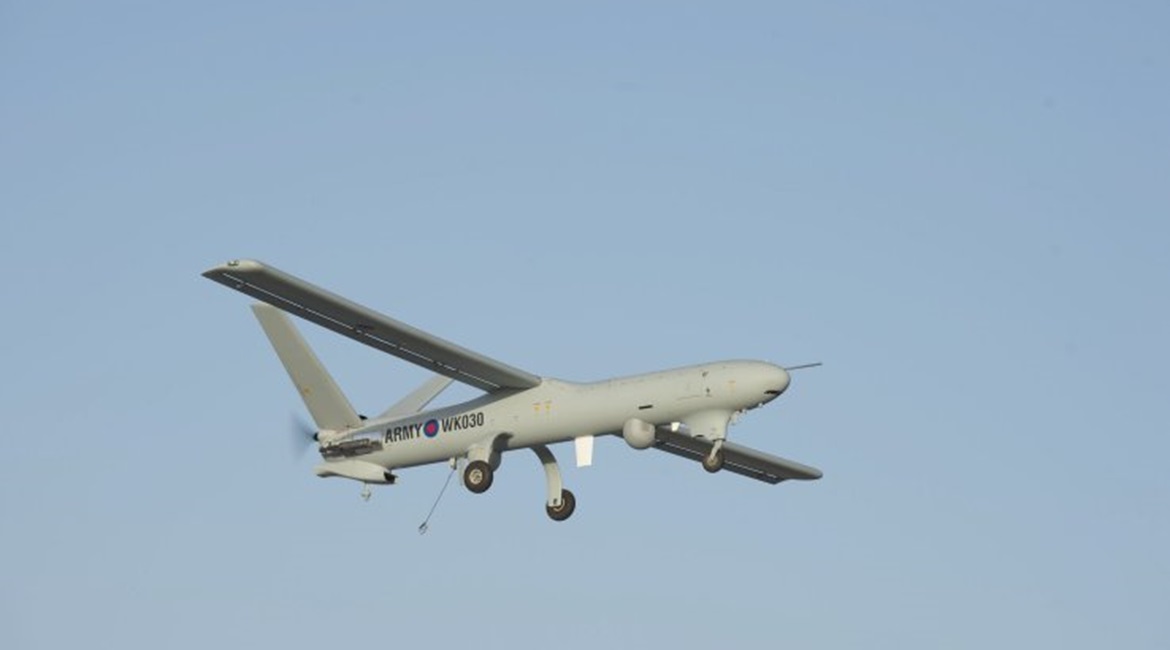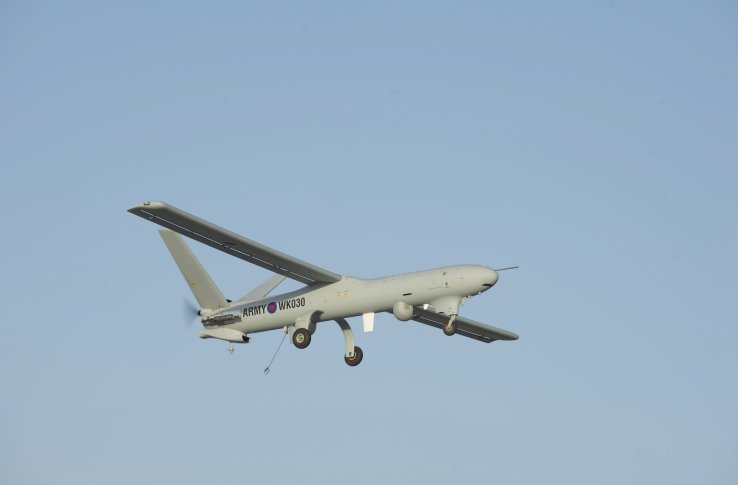
UK safety investigators have identified significant technical problems with the British Army’s Thales Watchkeeper tactical unmanned aerial vehicles (UAVs).
Shortfalls in the UAVs’ flight-control system and cold weather operations capability were revealed in two reports by the UK’s Defence Safety Authority (DSA) into two Watchkeeper crashes in 2017.
Lieutenant General Richard Felton, former director general of the Defence Safety Authority, criticised Thales, the manufacturer of the Watchkeeper, and the UK Ministry of Defence (MoD) for “not fully understanding how the Watchkeeper works, not making the most of simulation or the exploitation of data, and providing a disproportionate level of complexity to those who fly Watchkeeper”.
The two service inquiry reports, focusing on accidents on 3 February and 24 March 2017 by Watchkeepers flying from West Wales Airport at Aberporth, were released on 11 April. The cause of the first crash was determined to be icing in the UAV’s pitot head that eventually confused its flight-control systems, resulting in it stalling. The next crash was believed to be caused by a computer failure in the Watchkeeper’s flight-control system that meant a back-up component was not working.
A service inquiry into another crash on 13 June 2017 is expected to be published soon, but Lt Gen Felton said there were common themes in all three incidents as each resulted in a Watchkeeper air vehicle being lost beyond repair. The reports recommend more than 50 modifications to the Watchkeeper system, improvements in operational processes, and changes to flight procedures.
Lt Gen Felton wrote in his report into the 24 March 2017 crash that the MoD and Thales had “an incomplete level of detailed technical understanding of the Watchkeeper system”, which is derived from the Israeli Elbit Systems Hermes 450 unmanned aircraft system.

Looking to read the full article?
Gain unlimited access to Janes news and more...




